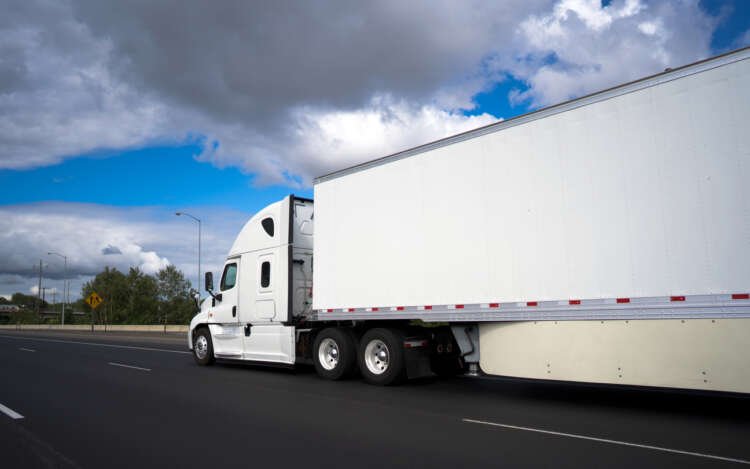How to streamline logistics costs


By Gary Dodsworth, UK Road Director at Rhenus Logistics.
Research shows 71 percent of UK logistics companies have reported an increase in the costs of transporting goods during Q1 2022 compared with the same period last year (Logistics UK May 2022 Performance Tracker, Logistics UK[1]). Gary Dodsworth, UK Road Director at Rhenus Logistics, outlines the actions businesses can adopt to take control and streamline logistics costs.
As problems go, supply chain disruption is nothing new. Following the chaos of the pandemic, which was showing signs of easing, we started this year believing 2022 would be calmer than 2021. So far, unfortunately, this has not proved to be the case.
Indeed, companies are already reporting a decline in orders, as consumers try to recoup costs from the cost-of-living price rises. However, businesses are by no means powerless in this situation – something many of our customers would attest to. Indeed, 52 percent of companies in a recent survey (Gartner, 2022)[2] said they were reducing their logistics overheads by increasing operational efficiency, rather than by cost cutting.
I’ve collated the top areas you can review as a business to streamline logistics costs to drive down your outgoings below.
Rethink your packaging
Timber exports from Ukraine and Russia are valued at an estimated USD 12 billion.[3] As a result of the timber export domination of these two markets, Russia’s invasion of Ukraine has negatively impacted the supply of the raw materials required for packaging, putting even more pressure on supply chains. Product packaging is one key area to review for cost savings – can it be reduced? Reducing the print area and package configuration at a design stage is a good place to start.
Unpick your reverse supply chain
The world of reverse logistics is an area that presents a wealth of opportunities to recover costs. Returned items should be reviewed as a matter of business efficiency to see if they are able to be resold and to determine new pricing. Also, keep purchasing informed on returns to avoid buying additional product.
Repurposing returned goods is an alternative way to recover costs. For example, you could sell an item with another product, or market it as part of a set to increase its value, and also to increase its circularity. The Canadian arm of IKEA now includes repurposing instructions for their customers in all their instruction manuals. In 2019, IKEA estimates it gave 47 million recovered products a second life – a figure that no doubt represents substantial business revenue that would otherwise have been lost.
Utilise Big Data
The definition of Big Data in a logistical sense is the use of large-scale data to help with forecasting and decision making. Many businesses, awed by its sheer volume and complexity, find the concept of Big Data overwhelming. But more and more industries are investing in this area.
At Rhenus, we use fuel management systems to track product flows, for example. With this wealth of knowledge at our fingertips, reviewing this data helps us to plan ahead for seasonal spikes. We use data from the past three years to help understand annual trends and mitigate against potential issues. The Rhenus supply chain is transparent and maintained in such a way that logistics costs can be easily analysed and reduced.
Warehousing is a key area to deploy Big Data. With warehousing, space is key. Interpreting Big Data can optimise transportation management plans, ensuring that warehouse space is used effectively – keeping the flow of products in and out of the warehouse moving smoothly, thus saving time and money
The value of actionable data has been apparent to many firms for some time, with a number of big industry players already having robust strategies in place. However, as logistics management and transportation networks become larger and more complex, driven by demands for more intricate service levels, the type of data managed also becomes more complex. In order to remain competitive, companies must work to continuously update and maximise their data capture.
Simplify your transport and customs requirements
Ensuring you are working with the correct carrier for the right activity in the right region will save you money. Equally, working more closely with your logistics partner to avoid (often costly) changes of plan will pay dividends.
Times may be challenging for businesses. And yet, if there is one thing we have learned over the past couple of years, it is the collective resilience of our customer basis. We know that businesses can innovate their way out of any crisis. The only question that remains is ‘are you ready to innovate’?
For more information, visit https://www.rhenus.group/uk/en.
[1] https://logistics.org.uk/media/press-releases/2022/may/seven-in-ten-logistics-operators-report-escalating
[2] https://blogs.gartner.com/power-of-the-profession-blog/if-you-want-to-cost-optimize-logistics-learn-how-to-eat-an-elephant/?_ga=2.210683925.140457732.1659604594-1495589176.1659604594
[3] https://packagingeurope.com/comment/how-will-the-war-in-ukraine-affect-the-paper-and-pulp-industry/7947.article
Logistics refers to the detailed coordination of complex operations involving people, facilities, and supplies to ensure the efficient movement and storage of goods.
Operational efficiency is the ability of an organization to deliver products or services in the most cost-effective manner while maintaining high quality.
Reverse logistics is the process of moving goods from their final destination back to the manufacturer or distributor for return, repair, remanufacturing, or recycling.
Big data in logistics refers to the vast amounts of data generated from logistics operations that can be analyzed to improve decision-making and operational efficiency.
Supply chain management involves overseeing and managing the entire flow of goods, information, and finances as they move from supplier to manufacturer to wholesaler to retailer to consumer.
Explore more articles in the Business category











